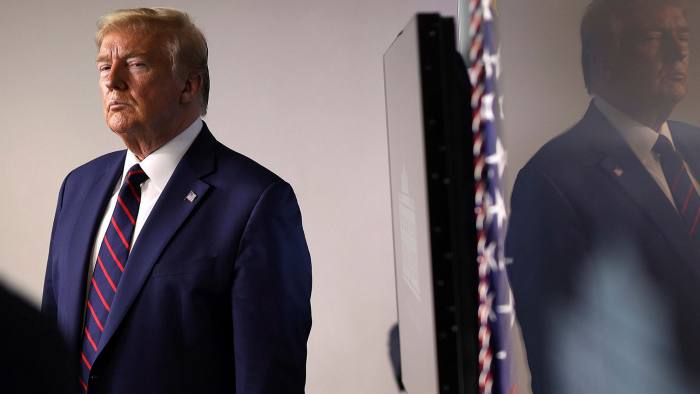The past four years have seen many norms of US presidential behaviour broken. The most recent — Donald Trump’s encouragement of a march on the Capitol to reverse the results of the 2020 election — are deservedly receiving much attention. But that outrage should not obscure other weaknesses in the electoral process and a range of inexcusable conduct.
Mr Trump may not have intended to enhance the democratic process but, by highlighting flaws in the system he inherited, he arguably did so. Congress should immediately correct these failings to prevent a future president from exploiting them. This will help restore trust in elections and institutions. Here are some obvious first steps.
Count the votes sooner. Under an 1887 law, the new Congress counts the Electoral College votes on January 6 of the year after a presidential election. But it is not required to wait until then by the US constitution and these days there is no reason to delay the process. It merely allows unfounded claims about fraud to fester for months. Change the law and require the outgoing Congress to count the vote soon after the election.
Mandate income tax disclosure. Presidential candidates and presidents are not required to release their income tax returns, and Mr Trump refused to do so. This should change. Presidents and presidential candidates should also be required to disclose all debts as well as financial ties to non-US entities.
Tighten the rules on financial dealings. Presidential appointees must obtain clearance from the Office of Government Ethics for their financial holdings, or liquidate them. Presidents should be required to do the same or, preferably, to set up a blind trust. Presidents should also be barred from having investments — other than Treasury bills — related to the federal government. That should include leases on government property of the kind that Mr Trump’s hotel chain had. The constitution also bars the president from receiving foreign emoluments, but doesn’t define them. Congress should clarify that foreign gifts or income are prohibited, unless waived by the ethics office.
Control presidential relatives. A 1967 anti-nepotism statute bars presidents from appointing their relatives to Cabinet-level positions. A similar bar should apply to White House positions such as that held by Ivanka Trump.
Protect transitions. An outgoing administration should be legally required to work with the office of the president-elect rather than doing so only with presidential approval.
Insulate agencies. The FBI director typically serves a 10-year term but can be fired, as in the case of James Comey. Presidents should be able to fire an FBI director only with the consent of a judicial or congressional panel. The heads of the Centers for Disease Control and Prevention and the Food and Drug Administration also serve at the pleasure of the president. They, too, should not be fired without independent oversight.
Ringfence the Department of Justice. The attorney-general and other DoJ officials should be prohibited from communicating with the president or his staff about potential DoJ investigations.
Improve oversight of the cabinet. An acting cabinet secretary can generally serve for up to 210 days without ever being confirmed by the Senate. That limit should be cut in half to provide greater congressional oversight.
Limit pardons. The constitution provides few constraints on presidential pardons. But Congress could ensure they are consistent with the constitution: it could require pardons to be considered only for those with no personal or financial connection to the president, and insist on a period of disclosure before any pardon becomes effective.
These changes will not solve all of the problems seen over the past four years. Other presidents may find new ways to circumvent established norms. But acting now would help to re-establish trust in the US presidency.
Read the original article on the Financial Times.
More about:
















































